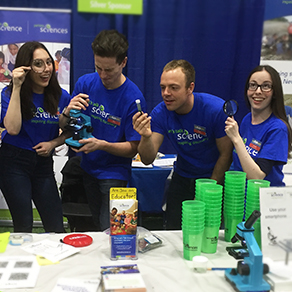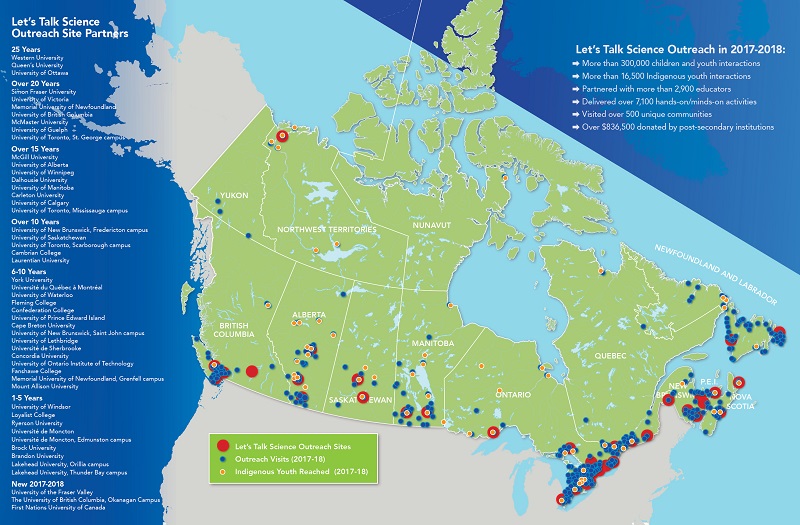25 years = 48 Outreach sites and growing!
Site coordinators and volunteers are critical members of the Let’s Talk Science Outreach team. Each year, across Canada, Let’s Talk Science mobilizes thousands of university and college students and STEM professionals to bring science to life.
“As a site coordinator, I get to see the impact Let’s Talk Science is having not only on young students but also on our volunteers,” says Monica Farag, Outreach Site Coordinator, University of Toronto Scarborough. “It’s wonderful to see many volunteers, who are typically shy gain confidence through their involvement and become leaders in their community.”
Since 1993, Let’s Talk Science has been sending trained volunteers to visit elementary and high school classrooms, libraries, and community events to deliver meaningful, exciting hands-on/minds-on STEM learning experiences to children and youth.
“It’s fulfilling to know that our outreach makes a difference by helping children and youth see how fun and applicable STEM is in their lives,” says, Anna Marie Hudlin former Outreach Site Coordinator, Brock University.
Over the past 25 years Let’s Talk Science Outreach has grown to include 48 site partners from coast-to-coast-to-coast, including the First Nations University of Canada. Let’s Talk Science is committed to equal access of its programs, building skills and career awareness about STEM.
“We are grateful to have the opportunity to take part in Let’s Talk Science’s STEM programming in Treaty 4 and Treaty 6 territories and beyond,” says Dr. Vincent Ziffle, faculty advisor for Let’s Talk Science Outreach at First Nations University, Regina, Saskatchewan. “We will maintain strong relationships with First Nations elders to better understand Indigenous science, experiential learning and important oral traditions.”
The world is changing and Let’s Talk Science remains relevant and important for Canadian youth and educators. Together we help them develop critical competencies needed for future success, including critical thinking, problem solving, communications and collaboration.

